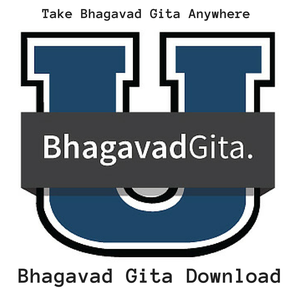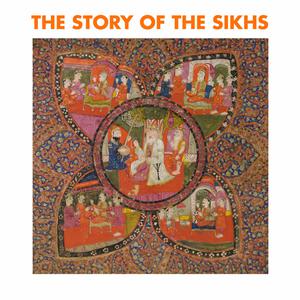
The Sikh Cast
Sikh Research Institute
Hosted by the Sikh Research Institute, we feature members of the Sikh community to talk about issues relevant to Sikhs around the world. For articles, blogs and videos find SikhRI on Youtube and Facebook, or head over to sikhri.org. Support this podcast: https://anchor.fm/the-sikh-cast-sikhri/support
- 7 minutes 44 secondsExplore Bani Bhagat Surdas Ji | The Guru Granth Sahib Project
Bhagat Surdas Ji, one of the fifteen Bhagat contributors to the Guru Granth Sahib, has a composition recorded on page 1253. This line encourages the mind to abandon the company of those who have turned away from IkOankar (the Divine). Explore Bani Bhagat Surdas Ji: https://bit.ly/bani-bhagat-surdas-ji
Featuring: Muktnoor Kaur #SikhCommunity #Sikhs #GuruGranthSahib #GuruGranthSahibJi #Sikhi #Wisdom #Podcast
23 January 2025, 6:40 pm - 9 minutes 24 secondsExplore Var Sat (Kabir Ji) | The Guru Granth Sahib Project
‘Var Sat,’ commonly called 'Satvar' or 'Satvara,' is a poetic form based on the seven days of the week. It is a unique literary style that connects each day of the week with a specific idea, emotion, teaching, or reflection. In the Guru Granth Sahib, compositions revealed in the Var Sat poetic form include those by Bhagat Kabir Ji and Guru Amardas Sahib. Explore Var Sat (Kabir Ji): https://bit.ly/var-sat-kabir-ji
Featuring: Jasleen Kaur (https://sikhri.org/people/jasleen-kaur) #SikhCommunity #Sikhs #GuruGranthSahib #GuruGranthSahibJi #Sikhi #Wisdom #Podcast
27 December 2024, 3:12 am - 5 minutes 17 secondsExplore Mahala 5 Gatha | The Guru Granth Sahib Project
Gatha refers to a song or verse, rooted in the word gai, to speak, sing, or recite. It can also refer to a profound discourse with the self beyond simple praise or devotion. Within its short saloks, this Bani explores how to overcome the five thieves-vices through praise and companionship. Explore Mahala 5 Gatha: https://bit.ly/mahala-5-gatha
Featuring: Jasleen Kaur (https://sikhri.org/people/jasleen-kaur) #SikhCommunity #Sikhs #GuruGranthSahib #GuruGranthSahibJi #Sikhi #Wisdom #Podcast
12 December 2024, 12:36 am - 57 minutes 14 secondsSikhi & History: Bhai Vir Singh's Perspectives
Harinder Singh explores Bhai Vir Singh's unique framing of Sikh history at Bhai Vir Singh Sahitya Sadan, Delhi.
• How did Bhai Vir Singh perceive and narrate Sikh history?
• What lens did he use to contextualize Sikh history within Indic and Western frameworks?
• How does his understanding inspire contemporary interpretations of Sikh history?Dive into the wisdom of Bhai Vir Singh and discover how his perspectives continue to shape the Sikh worldview.
Featuring: Harinder Singh (https://sikhri.org/people/harinder-singh)
#SikhCommunity #Sikhs #BhaiVirSingh #SikhHistory #Sikh #History
6 December 2024, 11:46 pm - 6 minutes 54 secondsExplore Patti (Mahala 3) | The Guru Granth Sahib Project
The essence of this composition is revealed in the stanza of rahau (Pause). In it, worldly accounting (entanglements) is described as useless. In the rest of the stanzas, the being is inspired to engage in true devotion to IkOankar instead of getting caught up in meaningless wordplay. Only by singing the praises of IkOankar can one be freed from worldly entanglements and gain honor in the court of IkOankar. Explore Patti (Mahala 3): https://bit.ly/patti-m3
Featuring: Muktnoor Kaur #GuruGranthSahib #Sikhi #Sikhism #Wisdom #Waheguru
29 November 2024, 2:25 am - 6 minutes 9 secondsExplore Thiti (Mahala 5) [Part 1] | The Guru Granth Sahib Project
This composition, aligned with the fifteen lunar days, follows Sukhmani Sahib in the Guru Granth Sahib. Though brief, it shares Sukhmani Sahib's simplicity and depth of message, making it a customary recitation after Sukhmani Sahib. The term ‘thiti’ is a variant of ‘tithi,’ a Sanskrit word that appears in the Guru Granth Sahib as ‘thiti,’ ‘thīti,’ or ‘thitī.’ Poetry inspired by the lunar calendar is referred to as ‘thiti.’ This poetic form reflects the lunar phases, created by the moon's waxing and waning.
Featuring: Jasleen Kaur (https://sikhri.org/people/jasleen-kaur)
Explore Thiti (Mahala 5): https://bit.ly/thiti-1-youtube #GuruGranthSahib #GuruGranthSahibJi #Sikhi #Wisdom #Sikhs
21 November 2024, 2:22 am - 2 hours 24 minutes1984: Witness, Document, Justice
Since 1984, in the aftermath of “Operation Blue Star” and the Sikh Genocide, many narratives have surfaced—graphic, heartbreaking, and deeply emotional. Yet, one crucial perspective often remains overlooked: the voices of the first responders. These brave individuals saved lives, offered aid in relief camps, and documented the earliest accounts of the atrocities. Join SikhRI as we pay tribute to those who answered the call of humanity during those dark days in Delhi. Featuring an esteemed panel of historians, activists, and legal advocates, this video sheds light on their courageous efforts. Featuring: Uma Chakravarti (https://sikhri.org/people/uma-chakravarti) Sucheta Mahajan (https://sikhri.org/people/sucheta-mahajan) Nilanjan Mukhopadhyay (https://sikhri.org/people/nilanjan-mukhopadyay) Harvinder Singh Phoolka (https://sikhri.org/people/harvinder-singh-phoolka) Paramjeet Singh (https://sikhri.org/people/paramjeet-singh) Sanam Sutirath Wazir (https://sikhri.org/people/sanam-sutirath-wazir) Amandeep Singh Sandhu (https://sikhri.org/people/amandeep-sandhu) Harinder Singh (https://sikhri.org/people/harinder-singh)
9 November 2024, 7:06 am - 54 minutes 46 secondsHeartbeats of ‘84
Join host Santbir Singh as he delves into the profound impact of 1984 through the personal reflections of guest Pritpal Singh. In this intimate and moving conversation, Pritpal offers a rare, firsthand perspective on how the events of that year shaped the lives of countless Sikhs.
Moving beyond historical accounts, this episode brings listeners into the raw realities of 1984, offering younger diasporic audiences an emotional connection to a defining moment in Sikh history.
Prepare to be deeply moved by Pritpal’s story of resilience and the unbreakable spirit of the Sikh community.
Featuring:
Pritpal Singh (sikhri.org/people/pritpal-singh)
Santbir Singh (sikhri.org/people/santbir-singh)
8 November 2024, 12:27 am - 7 minutes 42 secondsExplore Patti (Mahala 1) | The Guru Granth Sahib Project
Patti is a poetic form rooted in the Gurmukhi alphabet. Traditionally, students in Punjabi culture used a wooden tablet, called a patti, to practice writing letters. The Guru Granth Sahib contains several compositions structured around the alphabet, including the Patti revealed by Guru Nanak Sahib. This particular Patti consists of thirty-five two-line stanzas, along with a stanza of rahau, or Pause. Featuring: Jasleen Kaur (https://sikhri.org/people/jasleen-kaur)
Explore Patti (Mahala 1): https://bit.ly/patti-m1
#GuruGranthSahib #GuruGranthSahibJi #Sikhi #Sikhism #Wisdom #Waheguru
25 October 2024, 3:06 am - 1 hour 31 minutes1984 & Its Afterlives
To mark the 40th year of the violence of 1984, we reflect on the events that unfolded in India and make connections with the ongoing and durable violence against Sikhs, Muslims, and other minority groups in India and the diaspora.
Featuring: Uma Chakravarti (https://sikhri.org/people/uma-chakravarti) Shruti Devgan (https://sikhri.org/people/shruti-devgan) Sukhman Singh Dhami (https://sikhri.org/people/sukhman-singh-dhami) Suchitra Vijayan (https://sikhri.org/people/suchitra-vijayan)Watch the webinar: https://youtu.be/wGPqKHVvGU0
10 October 2024, 6:31 pm - 5 minutes 53 secondsExplore Maru Kaphi | The Guru Granth Sahib Project
In Maru Kaphi, Guru Nanak Sahib reflects on the grief caused by separation from IkOankar, showing that even with worldly comforts, one remains unhappy without this connection. It emphasizes that the transient nature of worldly relationships and explains that eternal union with IkOankar can be achieved through the Guru’s wisdom.
Explore Maru Kaphi: https://bit.ly/maru-kaphi
Featuring: Jasleen Kaur (https://sikhri.org/people/jasleen-kaur) #GuruGranthSahib #GuruGranthSahibJi #Sikhi #Wisdom #GuruNanak #GuruNanakSahib #GuruNanakDevJi #GuruNanakJi
9 October 2024, 6:39 pm - More Episodes? Get the App
- sikhri.org
- en-us
 10 Minute Bhagavad Gita Sessions from Ask Sri Vishwanath Show. How Bhagavad Gita Can Help You Solve the Big problems of your life. Take Bhagavad Gita Anywhere.
10 Minute Bhagavad Gita Sessions from Ask Sri Vishwanath Show. How Bhagavad Gita Can Help You Solve the Big problems of your life. Take Bhagavad Gita Anywhere.
 Kirtan & Katha - MySimran.info Podcast
Kirtan & Katha - MySimran.info Podcast
 Jap Ji Sahib English Translation, Meaning and Explanation - Nanak Naam - Satpal Singh
Jap Ji Sahib English Translation, Meaning and Explanation - Nanak Naam - Satpal Singh
 The Story Of The Sikhs
The Story Of The Sikhs
 Sikh History | 1469 to Present
Sikh History | 1469 to Present
 SikhNet Stories for Children
SikhNet Stories for Children
Your feedback is valuable to us. Should you encounter any bugs, glitches, lack of functionality or other problems, please email us on [email protected] or join Moon.FM Telegram Group where you can talk directly to the dev team who are happy to answer any queries.